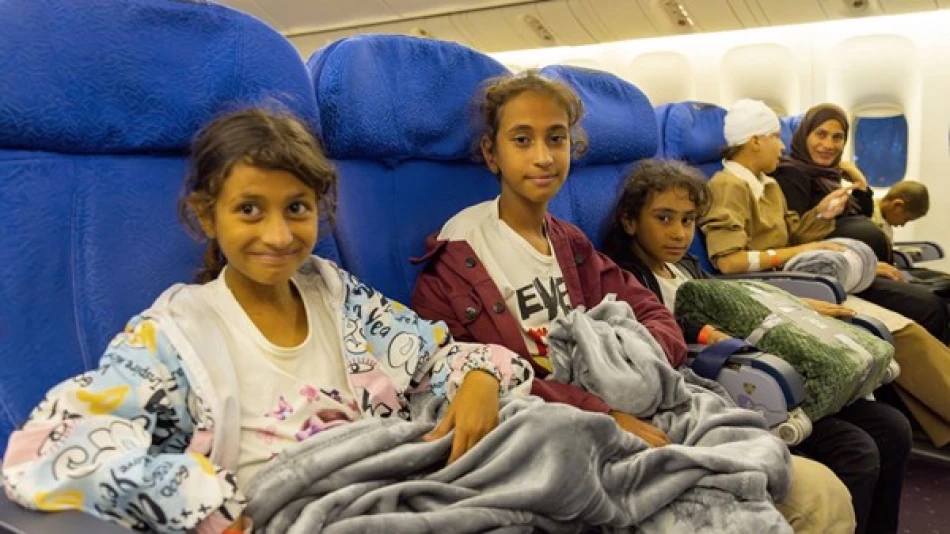
UAE Airlifts 155 Wounded Gazans for Urgent Medical Care, Fulfilling Directives from the President
UAE Scales Up Gaza Medical Evacuations as Regional Humanitarian Crisis Deepens
The United Arab Emirates has evacuated another 155 injured Palestinians and their families from Gaza, bringing the total number of medical evacuees to 2,785 since the conflict began. This latest operation, conducted in partnership with the World Health Organization through Israel's Ramon Airport and the Kerem Abu Salem crossing, underscores the UAE's expanding role as a regional humanitarian hub amid one of the most severe medical crises in Gaza's recent history.
Presidential Directive Targets Vulnerable Children
The evacuation program operates under direct orders from UAE President Sheikh Mohammed bin Zayed Al Nahyan, who has committed to treating 1,000 wounded Palestinian children and 1,000 children with cancer in UAE hospitals. This targeted approach reflects a strategic focus on the most vulnerable populations, particularly given Gaza's limited pediatric oncology capabilities and the destruction of medical infrastructure.
Critical cases are being transferred to specialized hospitals in Abu Dhabi, while other patients and their families receive care at the Emirates Humanitarian City under supervision of specialized medical teams. The UAE is providing comprehensive medical, educational, and cultural services to patients and families—a holistic approach that distinguishes it from typical emergency medical responses.
Strategic Positioning in Middle East Diplomacy
Sultan Mohammed Al Shamsi, Assistant Foreign Minister for Development and International Organizations and Deputy Head of the UAE's international aid agency, emphasized the country's "historical support for the Palestinian people." This language signals the UAE's careful navigation of regional sensitivities while maintaining its Abraham Accords relationship with Israel.
The evacuation route through Israeli territory demonstrates the UAE's unique diplomatic position—able to coordinate with both Israeli authorities and international organizations to facilitate humanitarian access that other regional players cannot achieve.
Expanding Humanitarian Infrastructure
Beyond evacuations, the UAE has established multiple medical facilities including a floating hospital off Egypt's Al-Arish coast and a field hospital in southern Gaza. This multi-pronged approach creates redundancy in medical services and positions the UAE as a long-term humanitarian partner rather than a short-term crisis responder.
Regional Implications for Gulf States
The UAE's prominent humanitarian role in Gaza could influence other Gulf states' approaches to Palestinian aid, particularly as regional powers seek to balance domestic public opinion with evolving diplomatic relationships. The scale and visibility of UAE operations may pressure other wealthy Gulf nations to increase their humanitarian commitments.
The sustained nature of these evacuations—now exceeding 2,700 individuals—suggests the UAE views this crisis as requiring long-term engagement rather than temporary assistance. This approach aligns with the country's broader strategy of establishing itself as a stable, influential player in Middle Eastern affairs through humanitarian leadership rather than military intervention.
For international observers, the UAE's ability to maintain these operations while navigating complex regional relationships demonstrates how humanitarian diplomacy can serve both moral imperatives and strategic interests in an increasingly fragmented Middle East.
Most Viewed News

 Layla Al Mansoori
Layla Al Mansoori






